The topic of baby oatmeal cereal has become highly popular in recent years. Not much time has elapsed since cereal for babies has been considered as essential food. In this day and age, there’s a lot of talk about what the best cereal for baby is and often, giving toddlers cereal has become a marker of lazy parenting. The intention was to eager mothers, instead opting, to create their own organic purees, scrambling eggs and mashing up fish to feed their little children. Cereals, on the other hand, have become readily slammed as being excessively processed, and many consider it as slightly toxic junk food even. It’s great that parents want to feed kids healthy, but there has been a lot of scaremongering about giving infants cereal, and, according to the scientific evidence, this has to stop.
In this article, we are going to point out the reasons why cereal is good for your child and will talk about some differences between oatmeal vs rice cereal for babies. If you’re wondering about practical things, such as when do babies start eating baby food, what the best baby cereal digestion time is, we will also cover these issues. By the end, you’ll be comfortable introducing food to baby.
When Do Babies Begin to Eat Cereal?
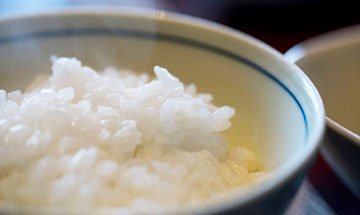
If you ask when do babies start eating rice cereal, the answer is that a child can be fed with it at the age of five months. Every little child is different, so rough guidelines may not work for your little toddler. Don’t worry if they aren’t ready for this meal at five or six months, they will grow soon towards a spoon-feeding approach. Sometimes things take a little longer, but there is nothing to be concerned about if this is the case.
What’s the Difference Between Baby Rice Cereal and Oatmeal?
It is quite easy for a toddler to make the transition from breast milk to solid food if the latter is rice cereal. A lot of parents have expressed their appreciation for rice child nutrition, because it is gluten-free and so unlikely to cause allergy. One of the best ways to enhance rice taste is to mix it up with a formula or breast milk. When you are searching for some kind of solid food to improve the digestive health of your toddler, brown rice contains much more fiber than white rice. Because of microscopic amounts of arsenic found in rice, experts have suggested that parents only feed infants with rice products less than six times a week.
If your kid does not have an oatmeal allergy, they will really enjoy the nutty flavor of this food. Any feed, that is iron-enriched, generally takes great, plus oatmeal contains natural fibers and antioxidants. Comparing to rice cereal, oatmeal contains more iron which can help promote cognitive development, and the antioxidants help to alleviate the risk of cancer in the future. If your toddler shies away from oatmeal, you can try putting some dried fruit in the bowl.
Possible Side Effects of Oatmeal and Rice Cereal
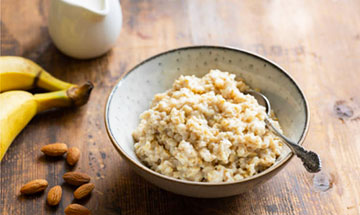
If your little child is between four and five months old, this is a great time to get started with one of these cereals. Introduce one type of grain at a time, paying attention to see if there are any allergic reactions that develop. Give a little and check to see if there are any sources of potential sensitivity. It’s worth getting a heads up on any possible side effects that grain can cause, and the best way to do this is by trial and error. You don’t want your child being allergic or eating products that can give him/her allergic reactions.
The Scientific Evidence on Cereals
It is important not to get caught up with any negative rhetoric on both oatmeal and rice cereal. There has been a lot of complaining, particularly on the Internet, however, much of negativity has no proof. We’re going to take you through the scientific base so that you can make your own conclusions. You ought to find that starting baby on oatmeal vs rice cereal is not a bad thing.
Commercial Cereals for Babies Aren’t Bad for Them

What exactly is in a сhild cereal? The essential components are oat flour, minerals, and vitamins. When you add milk, you are increasing their fat and protein content. No sugars and salts are added within toddler products. It is a really good thing that it contains vitamins and minerals, considering the mineral deficiencies that a lot of children are facing. It makes perfect sense to fortify a product with zinc, iron and vitamin C – these minerals help the immune system and can actually improve the absorption of other minerals. There is no reason to worry about any added vitamins and minerals contained within infant food products. Everything is safe and reliable.
Babies Are Able to Digest Grains
It is very possible for a toddler to digest grains. Even at an early stage, kids have enough amylase. This enzyme is responsible for the digestion of starch, so it is possible for toddlers to eat cereals.
It Is Easy to Avoid GM Baby Cereals

We are not going to dwell on whether GM foods are good or bad for society, yet it is easy for you to avoid giving your baby GM cereal. Ingredient lists of common grains that do not contain popular GM ingredients such as cottonseed, corn, soy, papaya or canola. Occasionally, you may find some GM in multigrain products which include corn, but if you’re worried about giving your child genetically modified foods, you can simply avoid them. Also, you can opt for products without fruits which may be GM – you better add your own fruits to the mix.
Arsenic and Rice Cereal. Does Earth best organic rice cereal have arsenic?
Arsenic is an element which is present in the Earth’s groundwater and soil – we’ve added it to our environment through the use of pesticides and fuel burning. Because rice grows in water, it is more likely to accumulate arsenic. In general, you can expect brown rice to contain more of it comparing to white rice. According to the FDA, one shouldn’t expose their child to too much rice product at an early stage – the limit is around 100 μg/kg or 100 ppb inorganic arsenic. One serving of rice cereal may put kids close to this limit. If you choose organic, even the best organic cereal for baby health won’t contain less arsenic – the content is unaffected if rice is grown organically.
Pros and Cons of Rice Cereal For Babies
It is fine to feed your toddler with rice products, as long as you do it in moderation. You should always have variety as a goal for your baby’s diet – this means much more than a nutritionally balanced diet, in other words, feeding your child with different kinds of foodstuff. By doing this, you can protect them against any problems associated with a particular ingredient. Therefore, it is a good idea to give your child rice cereal.
Whole Grain Cereals are Better Unless Your Baby Requires More Iron

Whole grains are unrefined and contain the entire grain seed, including germs and brans. It makes them much greater in vitamins, proteins, fiber, and minerals. Any groats that become refined contain the starchy endosperm only. Whole grains are a wonderful option for your child, because they are more nutritious, and also your kid can become more accustomed to different textures, rather than simple refined ones.
- (Packaging May Vary) Pack of six (6) 16 oz containers, about 30 servings per container
- Has iron to help support learning ability
- Non-GMO: not made with genetically engineered ingredients
- Made with whole grains
- The health and safety of your little one has been and will always be Gerber’s highest priority. We're a leader in infant nutrition, not just because we grow food that will feed your little one, but also because we know what nourishment your little one needs
Multigrain Cereal vs Oatmeal
All children are different, for some rice cereal is better for others oatmeal. But better to introduce each grain individually before you use the multi grain, in case she is allergic.
5 Best Baby Oatmeal Cereal Brands
- Gerber
- Happy Baby Organics
- Earth’s Best Organic
- Beech-Nut
- Fleur Alpine
Oatmeal Vs Rice Cereal For Babies With Reflux
It is not an easy question and better to ask your doctor for an answer. Because the causes of reflux can be different.
For example:
- wrong feeding and dosage regimen
- short or narrow esophagus
- position while feeding
- overfeeding
- etc.
Make Your Own Baby Cereals

It is possible to go down a home-made route, however, it is unlikely that your cereals will be fortified with iron, so do make sure that your child receives it from other sources. It is fun to make your own formula, and it allows you to experiment with different types of grain and textures, adding interest and variations to the mix. Other than thinking “which is better for baby rice cereal or oatmeal”, don’t forget that there are other grains to try, such as millet and quinoa. If you are to use whole grains, consider some processing methods if you want to reduce the amounts of phytates. It is possible to soak seeds and reduce this level by about half, plus, if you are using rice, you can also reduce the amount of arsenic by soaking.
Frequently Asked Questions:
Is Rice Cereal Gluten-Free?
Rice is gluten free, so rice flakes must be gluten free. But before buying, check the ingredient list to avoid allergic reactions because some manufacturers may add wheat
How many times a day should I feed my baby cereal?
As a general rule of thumb, once you switch to cereals you can start to feed your baby around 3 to 4 tablespoons of cereals a day. This can be combined with 1 to 2 tablespoons of fruits and vegetables to create a healthy, filling meal.
Lots of Fun for the Future
We hope that this guide has given you a hit of the differences between oatmeal and rice cereal. They’re not as bad as you think! Nutritional benefits of both are spectacular and certainly worth considering. Now all you’ve got to do is to think about how to introduce food to baby and determine when to start baby on solids. Sometimes it can be difficult getting a child to eat, so think about how to introduce solids in a playful manner that entertains and relaxes your child.
Do you have a little kid? Have you fed them any rice products or oatmeal? We’d love to hear from you. Please leave parenthoodroutine.com your comments!Contents
- 1 When Do Babies Begin to Eat Cereal?
- 2 What’s the Difference Between Baby Rice Cereal and Oatmeal?
- 3 Possible Side Effects of Oatmeal and Rice Cereal
- 4 The Scientific Evidence on Cereals
- 4.1 Commercial Cereals for Babies Aren’t Bad for Them
- 4.2 Babies Are Able to Digest Grains
- 4.3 It Is Easy to Avoid GM Baby Cereals
- 4.4 Arsenic and Rice Cereal. Does Earth best organic rice cereal have arsenic?
- 4.5 Pros and Cons of Rice Cereal For Babies
- 4.6 Whole Grain Cereals are Better Unless Your Baby Requires More Iron
- 5 Multigrain Cereal vs Oatmeal
- 6 5 Best Baby Oatmeal Cereal Brands
- 7 Oatmeal Vs Rice Cereal For Babies With Reflux
- 8 Make Your Own Baby Cereals
- 9 Frequently Asked Questions:
- 10 Lots of Fun for the Future

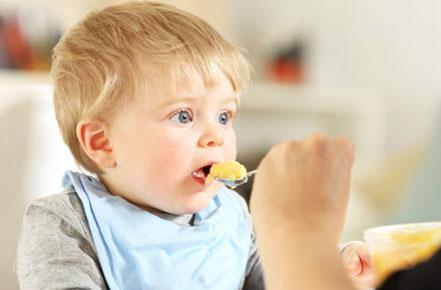
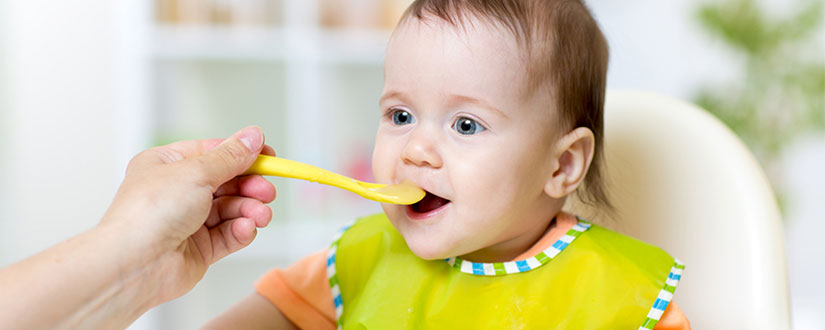




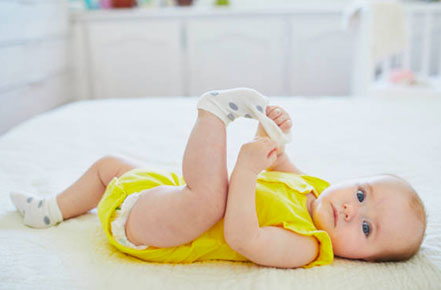
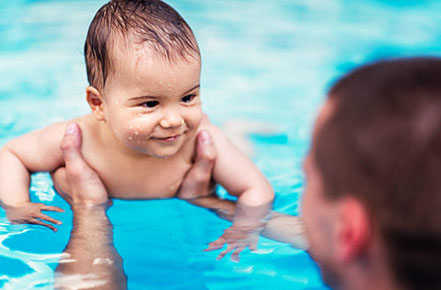
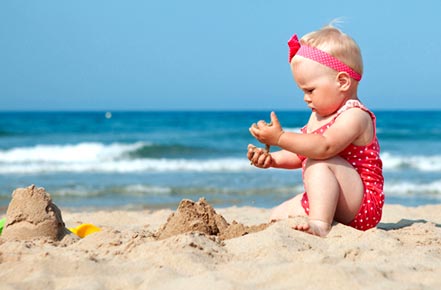



COMMENTS